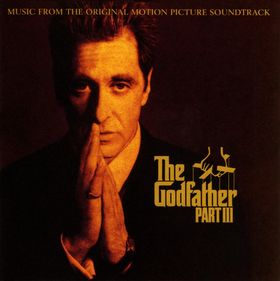


In his introduction to Coleman's new volume, recording artist Ahmir ?uestlove Thompson laments the lack of liner notes in hip-hop recordings, and it's this void that Coleman seeks to fill in this significantly expanded and updated version of his 2005 title Rakim Told Me. –Ronin Ro, author of Have Gun Will Travel “A rarity in mainstream publishing: a truly essential rap history.” –DJ Evil Dee of Black Moon and Da Beatminerz It really shows how these albums were made and touches the music fiend in everyone.” “All producers and hip-hop fans must read this book. –Jeff Chang, author of Can’t Stop Won’t Stop

“Brian Coleman’s writing is a lot like the albums he covers: direct, uproarious, and more than six-fifths genius.” This is the book that belongs on the stacks next to your wax. Insightful, raucous, and addictive, Check the Technique transports you back to hip-hop’s golden age with the greatest artists of the ’80s and ’90s. Studio craft and street smarts, sonic inspiration and skate ramps, triumph, tragedy, and take-out food–all played their part in creating these essential albums of the hip-hop canon. Performers, producers, DJs, and b-boys–including Big Daddy Kane, Muggs and B-Real, Biz Markie, RZA, Ice-T, and Wyclef–step to the mic to talk about the influences, environment, equipment, samples, beats, beefs, and surprises that went into making each classic record. The format: One chapter, one artist, one album, blow-by-blow and track-by-track, delivered straight from the original sources. A longtime scribe for the hip-hop nation, Brian Coleman fills this void, and delivers a thrilling, knockout oral history of the albums that define this dynamic and iconoclastic art form. That’s a damn shame, because few outside the game know about the true creative forces behind influential masterpieces like PE’s It Takes a Nation of Millions., De La’s 3 Feet High and Rising, and Wu-Tang’s Enter the Wu-Tang (36 Chambers). Yeah, the Chinese restaurant skit is a little dicey, but on the whole, The Score balances intelligence and accessibility with an easy assurance, and ranks as one of the most distinctive hip-hop albums of its era.It’s a sad fact: hip-hop album liners have always been reduced to a list of producer and sample credits, a publicity photo or two, and some hastily composed shout-outs. Their protest tracks are often biting, yet tempered with pathos and humanity, whether they're attacking racial profiling among police ("The Beast"), the insecurity behind violent posturing ("Cowboys"), or the inability of many black people in the Western Hemisphere to trace their familial roots ("Family Business"). Even when they're not relying on easily recognizable tunes, their original material is powered by a raft of indelible hooks, especially the great "Fu-Gee-La" there are also touches of blues and gospel, and the recognizable samples range from doo wop to Enya. Their strong fondness for smooth soul and reggae is underscored by the two hit covers given slight hip-hop makeovers ( Roberta Flack's "Killing Me Softly With His Song" and Bob Marley's "No Woman, No Cry"). Not just a collection of individual talents, the Fugees' three MCs all share a crackling chemistry and a wide-ranging taste in music. It not only catapulted the Fugees into stardom, but also launched the productive solo careers of Wyclef Jean and Lauryn Hill, the latter of whom already ranks as one of the top female MCs of all time based on her work here. The Score's eclecticism, social consciousness, and pop smarts drew millions of latent hip-hop listeners back into the fold, showing just how much the music had grown up. Its left-field, multi-platinum success proved there was a substantial untapped audience with an appreciation for rap music but little interest in thug life. A breath of fresh air in the gangsta-dominated mid-'90s, the Fugees' breakthrough album, The Score, marked the beginning of a resurgence in alternative hip-hop.


 0 kommentar(er)
0 kommentar(er)
